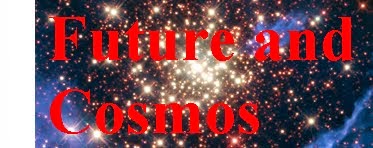We sometimes hear people speaking about
“gaps” in our scientific knowledge. People often speak as if
there were merely a few cracks or gaps in our scientific knowledge,
and that in the not-too-distant future those gaps will be filled in (perhaps rather like some construction worker filling in a few
cracks in a wall).
Is it correct to speak in such a way?
No, it isn't. But the reason is not that our scientific knowledge is
perfect. The reason is that our scientific knowledge is so
fragmentary and so tiny that it is misleading to use the term gaps or
cracks to refer to what we don't know. What we should be saying is
that what we do know is tiny, and what we do not know is vast.
Consider the current state of our
knowledge. We know about the surface of our planet and a few other
planets. But we live in a vast universe of billions of galaxies, many
of which have billions of stars. So we know nothing about
99.999999999999% of the planets of the universe.
We also know basically nothing about
most of the matter and energy in the universe. Scientists say that
96% of the matter and energy is dark matter and dark energy, which we
know basically nothing about. We also have no idea what caused the
origin of the universe billions of years ago. There are many
mysteries regarding how we got from the supposedly infinite density
of the Big Bang to the orderly state the universe is in now.
Considering only our ourselves and our
planet, we know almost nothing about mysteries such as the origin of
life and how our brains work. There is much evidence of some great
psychic reality that we are almost completely ignorant about.
Unraveling how the brain works seems a thousand year project that we
have barely started.
Given such realities, is it accurate to
say that there are “gaps” or “cracks” in our knowledge? No,
because such a term implies that we have learned a good fraction of
what there is to know. If someone asked you how much you know about
quantum chromodynamics, it would be most misleading for you to say
that there are gaps in your knowledge of quantum chromodynamics (as
that would imply you know a large fraction of that topic). You should
instead say that you know nothing or virtually nothing about such a
topic.
Rather than speaking of gaps in our
scientific knowledge, it is more truthful to say that our knowledge
of nature is fragmentary, and that we have acquired only a few
pieces in the vast jigsaw puzzle of nature. In the great million-year
project of unlocking the universe's secrets, we are merely fledglings and
newbies.
Those who sell a story of scientific
triumphalism often speak as if scientists are like
college juniors or seniors with not terribly much left to master in
the curriculum. But instead they (and the rest of us) are all like
kids who have merely finished the first few weeks of kindergarten.
Imagine a little child who makes a trip
to the seashore. After he observes a few seagulls and fills up a
bucket with shells, pebbles, and starfish, he may congratulate
himself on his splendid progress in understanding nature. But ahead
of him lies the vast and mysterious ocean, the mysteries of which he
has barely begun to unravel. That little child is like humanity,
which has so far accumulated only a few scattered fragments of
nature's deep and mysterious truths, too vast in number to be
enumerated.
Schematic diagram of human knowledge


No comments:
Post a Comment